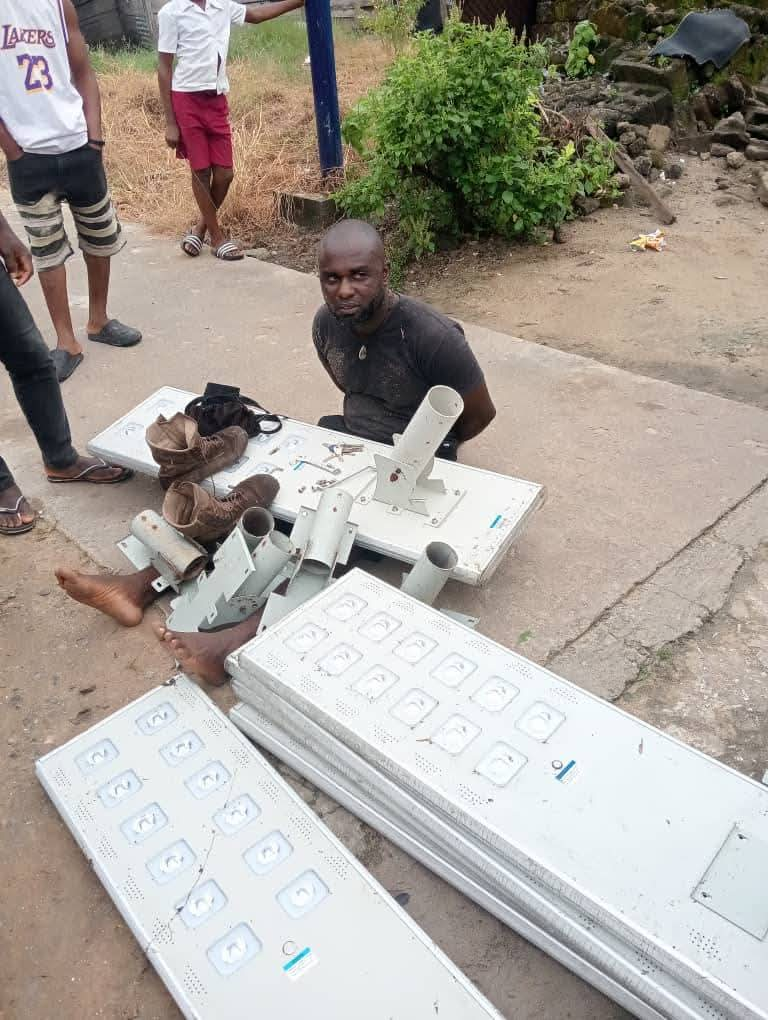A suspected thief was apprehended by youths of the Etie-Ama community on Wednesday night while allegedly attempting to steal solar panels installed along the Etie-Ama/Igbeta-Ewoama Road.
The incident has raised serious concerns about the growing threat of theft and vandalism targeting community infrastructure in the Brass-Nembe region of Bayelsa State.
According to reports, the individual caught in the act has been identified as a former youth president of the Igbeta-Ewoama community. He is alleged to have been involved in a series of theft and vandalism incidents targeting public infrastructure and communal assets across the area.
READ ALSO: Edo Govt Distributes Smart Solar Boxes to 22 Youths
Community leaders and stakeholders have been urged to take immediate action to prevent further damage to public property. In a notification issued to the Board of Trustees (BoT), members of the Management and Advisory Committees, and other local leadership structures, residents were advised to remain vigilant and adopt stronger protective measures for public facilities.
The solar panels, part of development projects awarded by the Brass-Nembe Host Communities Development Trust (HCDT), are among several community-focused infrastructure initiatives either recently completed or nearing commissioning. The attempted theft has sparked fears that more completed but yet-to-be-commissioned projects may become targets if adequate security is not ensured.
The notice emphasized the importance of disseminating the information across all youth groups, women’s associations, Community Development Committees (CDCs), traditional rulers, and stakeholders throughout the Brass-Nembe HCDT communities. The aim is to raise awareness and galvanize community-wide action in protecting public investments.
“We urge all stakeholders to take absolute measures in protecting our community properties from thieves and vandals,” the notification read. It added that with many projects now completed and awaiting formal handover, there is an urgent need for communities to take ownership of these assets and ensure they remain secure.
In response to the incident, contractors working on HCDT-funded projects have also been urged to implement immediate site-level security precautions. The goal is to safeguard project facilities until they are officially transferred to the respective communities.
The message concluded with a reminder that without community-led protection of these projects, the intended benefits could be undermined before they are even put to use.
This latest development underscores a broader challenge facing rural development efforts in the Niger Delta region, where issues of insecurity, theft, and inadequate enforcement mechanisms have occasionally hampered the long-term sustainability of public infrastructure projects. Community leaders are now calling for more coordinated efforts, including the possible establishment of community watch programs, to prevent further incidents and protect the collective gains of recent development initiatives.





